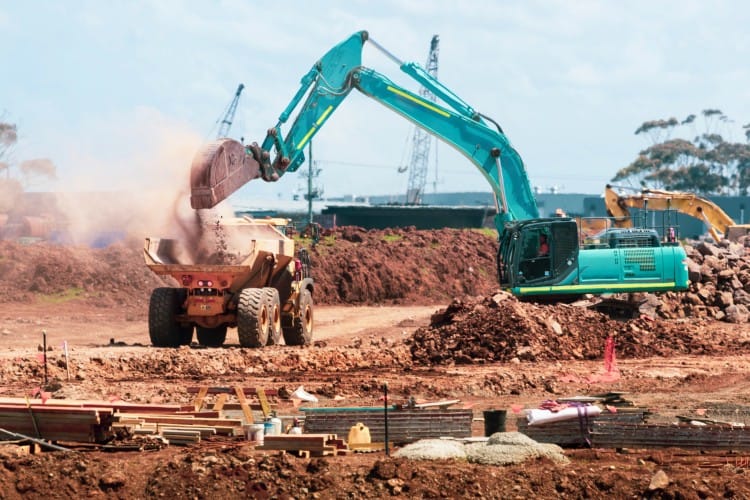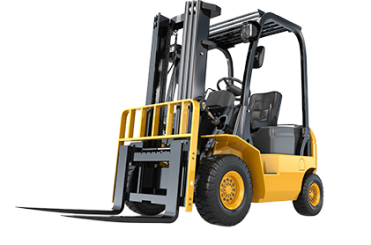Essential Tips for Managing Heavy Tools Rental Contracts and Logistics Effectively
Successfully managing heavy devices rental arrangements and logistics is important for the success of any kind of project that relies on these sources. A detailed understanding of rental terms, paired with precise assessment of devices demands, lays the structure for beneficial arrangements. Additionally, working with transportation logistics and preparing for ongoing upkeep can considerably lower unexpected expenses and hold-ups. However, the details of these elements usually present challenges that require strategic foresight. What are the key considerations that can transform these potential risks into opportunities for effectiveness and cost-saving?
Understand Rental Terms
Comprehending rental terms is vital for successful hefty devices administration. Familiarity with the particular regards to a rental contract can significantly affect operational effectiveness and cost-effectiveness. Trick parts normally include rental duration, repayment structure, and upkeep duties. The rental duration specifies the duration for which the equipment is leased, affecting budgeting and job timelines. Settlement frameworks often vary, incorporating daily, weekly, or month-to-month rates, which demand accurate calculations to prevent unanticipated costs.
In addition, it is important to understand the maintenance commitments described in the contract. Usually, rental firms keep the equipment, but recognizing who is accountable for regular checks and repairs is crucial to avoid functional interruptions. Additionally, terms might include stipulations concerning responsibility for problems or burglary, which can have major monetary implications otherwise correctly recognized.

Assess Equipment Requirements
Examining equipment demands is an essential action for any kind of project manager aiming to enhance source allocation and boost functional performance. This procedure includes a complete analysis of the job demands, including specific tasks, timelines, and the type of devices necessary to attain desired outcomes.
Begin by identifying the scope of the job and the jobs that will certainly be done. Take into consideration elements such as the terrain, the scale of procedures, and any type of possible difficulties that could affect equipment option. Involving with staff member that will certainly operate the machinery can supply important insights right into useful needs and choices.

Following, assess the ability and capabilities of readily available equipment alternatives. It is necessary to match the best tools to the tasks at hand, making sure that it can take care of the expected workload without endangering security or efficiency.
In addition, consider the rental period and regularity of use. Understanding these components can assist identify whether renting or acquiring is one of the most economical option. By conducting a comprehensive evaluation of equipment demands, project supervisors can make informed decisions that result in boosted productivity and minimized functional costs.
Negotiate Successfully
When the tools requirements are plainly determined, the following action entails reliable arrangement with rental business to safeguard construction equipment transport beneficial terms. Begin by investigating various rental firms to recognize their rates frameworks, supply schedule, and reputation.
When coming close to the settlement table, be clear regarding your needs, consisting of the sort of devices, rental period, and any kind of added services you may require. This openness makes it possible for rental firms to supply customized options that can meet your specific needs (construction equipment rentals). Do not hesitate to request discount rates, particularly for lasting services or mass orders, as several business are eager to supply giving ins to protect bigger contracts
Additionally, think about negotiating terms connected to insurance, delivery, and upkeep costs. These elements can substantially affect the total expense and must be clearly described in the rental arrangement. Ensure that all agreed-upon terms are recorded in writing to avoid misunderstandings and safeguard your rate of interests throughout the rental duration. Efficient arrangement not just results in price financial savings but also establishes a try this positive partnership with the rental business.
Coordinate Transport Logistics
Working with transport logistics is a vital facet of handling hefty equipment rental arrangements. Efficient transportation ensures that equipment is supplied on time and in optimal condition, thereby decreasing downtime and enhancing project effectiveness. To achieve this, it is important to establish a thorough logistics prepare that lays out the whole transportation process from pick-up to delivery.
Begin by evaluating the certain transport needs based upon the type and dimension of the equipment included - heavy equipment rental. Involve with trusted transportation companies that specialize in heavy tools to guarantee they have the needed knowledge and tools, such as flatbed trucks or specialized trailers. Discuss aspects such as weight limitations, path constraints, and called for authorizations to prevent unexpected hold-ups
Additionally, keep open communication with both the rental firm and the transportation service provider to collaborate routines efficiently. Verify all information, including pickup and drop-off times, to ensure everyone is aligned and prepared. Establish contingency strategies to deal with any kind of possible disruptions, such as adverse climate or traffic conditions, which might influence the transport timeline. By carefully collaborating transport logistics, you can copyright the stability of your rental agreement and promote smooth job implementation.
Plan for Maintenance and Support
:max_bytes(150000):strip_icc()/Balance_Must_Have_Earth_Moving_Construction_Heavy_Equipment_844586-c5b6ac9e5c074c11ad41e9acaea8f099.png)
Additionally, it is crucial to connect straight with the rental supplier concerning upkeep obligations. Some agreements might consist of upkeep as component of the rental solution, while in other instances, the onus may fall on the renter. Comprehending these terms will aid stay clear of unforeseen costs and responsibilities.
In enhancement, having accessibility to technological assistance can be indispensable. Ensure that the rental firm offers 24/7 you could try here support or an emergency situation contact, enabling swift resolution of any devices issues. Training your team on proper tools usage and regular checks can additionally significantly enhance operational effectiveness.
Verdict
In conclusion, reliable monitoring of hefty equipment rental agreements and logistics hinges on a complete understanding of rental terms, accurate analysis of devices requirements, and experienced negotiation abilities. Emphasizing clear communication with all stakeholders stays critical in browsing the complexities of devices leasing and logistics monitoring.
Properly taking care of hefty equipment rental agreements and logistics is important for the success of any type of job that counts on these resources. By thoroughly evaluating and comprehending these rental terms, companies can make enlightened choices, minimize threats, and make certain that their hefty equipment management aligns with project objectives and financial constraints.Working with transportation logistics is an important aspect of taking care of hefty equipment rental contracts.In final thought, efficient administration of heavy devices rental contracts and logistics hinges on a detailed understanding of rental terms, specific analysis of tools needs, and skilled negotiation abilities. Highlighting clear communication with all stakeholders remains crucial in navigating the intricacies of tools rental and logistics monitoring.